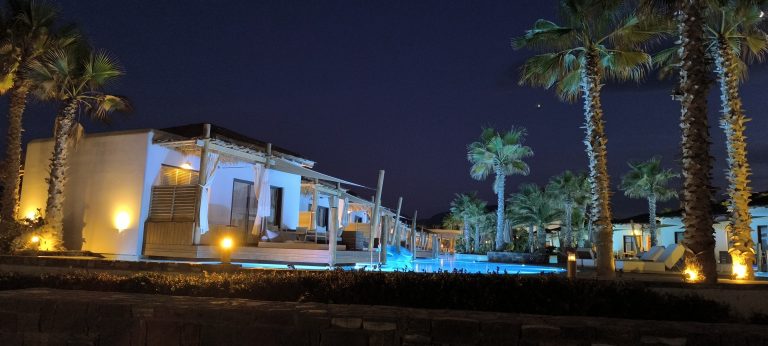Tour Operators Drive ESG Transformation in Mediterranean Hospitality

How Sustainability impacts business of hospitality
The Mediterranean hospitality sector is experiencing a seismic shift as tour operators intensify their focus on Environmental, Social, and Governance (ESG) criteria. Leading the charge is TUI Group, which has set ambitious sustainability targets for 2030, putting significant pressure on hotels and resorts across the region to align with these goals.
TUI’s movement towards sustainability
TUI’s Sustainability Agenda “People, Planet, Progress” outlines concrete targets approved by the Science Based Targets initiative (SBTi). By 2030, TUI aims to reduce emissions from its airlines by 24%, cruise operations by 27.5%, and most notably, its hotel operations by at least 46.2%. This aggressive target is reshaping the Mediterranean hospitality landscape, with TUI’s CEO Sebastian Ebel stating, “Anyone who works with TUI must be prepared to pursue ambitious goals and walk the path with us.”
The impact of these initiatives is already evident. In 2024, 81% of TUI hotels and resorts held sustainability certifications recognized by the Global Sustainable Tourism Council (GSTC). This trend is expected to accelerate, with TUI aiming for all its hotels and resorts to be carbon zero by 2030.
TUI’s influence extends beyond its own properties. The company is leveraging its market power to drive change across the sector:
- Local Sourcing: Hotels are urged to prioritize local and fair-trade suppliers, supporting Mediterranean economies while reducing transportation-related emissions^2.
- Waste Reduction: By 2025, TUI is committed to eliminating all unnecessary plastic packaging and items in its hotels^3. This initiative builds on its pre-pandemic success of removing over 257 million single-use plastic items^7.
- Food Waste: TUI has set a goal to reduce food waste in its hotels by 25% by 2030^3, pushing Mediterranean hotels to adopt innovative waste management practices.
- Certification Push: TUI is actively encouraging all its partner hotels to achieve GSTC-recognized certifications, raising the bar for sustainability standards across the Mediterranean^2.
The impact of these initiatives is significant. Hotels with strong sustainability credentials are seeing tangible benefits:
- 10% lower CO2 emissions per guest night
- 19% less fresh water use per guest night
- 24% lower waste volume per guest night
- 23% higher use of green energy

Pressure on Hospitality SMEs
Other tour operators are following suit. For instance, Thomas Cook Group and Jet2holidays are also implementing stringent sustainability criteria for their hotel partners.
This trend is reshaping the competitive landscape of Mediterranean hospitality. Hotels that fail to meet these evolving ESG standards risk losing valuable contracts with major tour operators. Conversely, those embracing sustainability are gaining a competitive edge, with data showing that certified hotels outperform in average daily rate (ADR) and guest satisfaction.
Risks for Mediterranean hospitality businesses rise there:
- Procurement pressure from Tour Operators
- High competition: difficulties in making the difference in hospitality
- Rising sustainability requests from customers
As we look towards 2030, it’s clear that tour operators will continue to be a driving force in the ESG transformation of Mediterranean hospitality. Hotels and resorts that proactively align with these sustainability goals will be best positioned to thrive in this evolving market.
Have a read about how to implement CSR in a Mediterranean Hotel in Cyprus

Elia Go’s journey for growth in Hospitality Sector
At Elia Go, we are on a mission to show the road to mediterranean businesses to sell more with sustainability. For Hospitality professionnals we provide CSR and ESG diagnosis, and action plans to help you sell more, higher prices.






